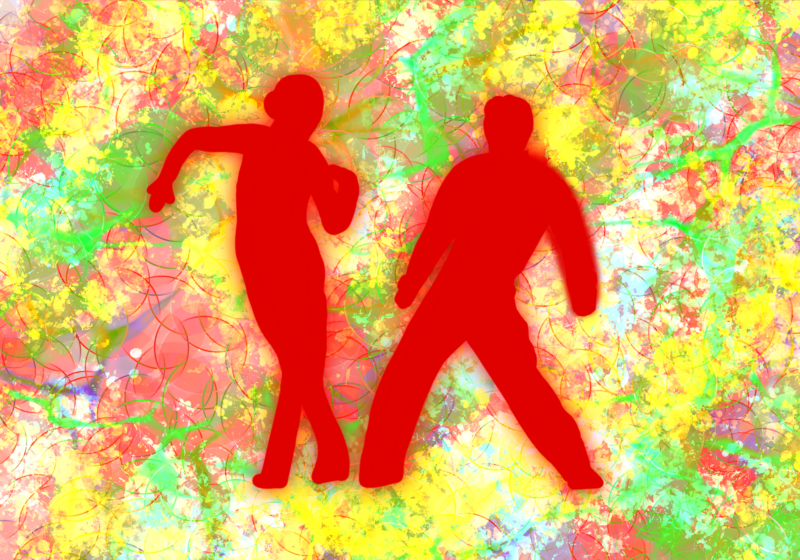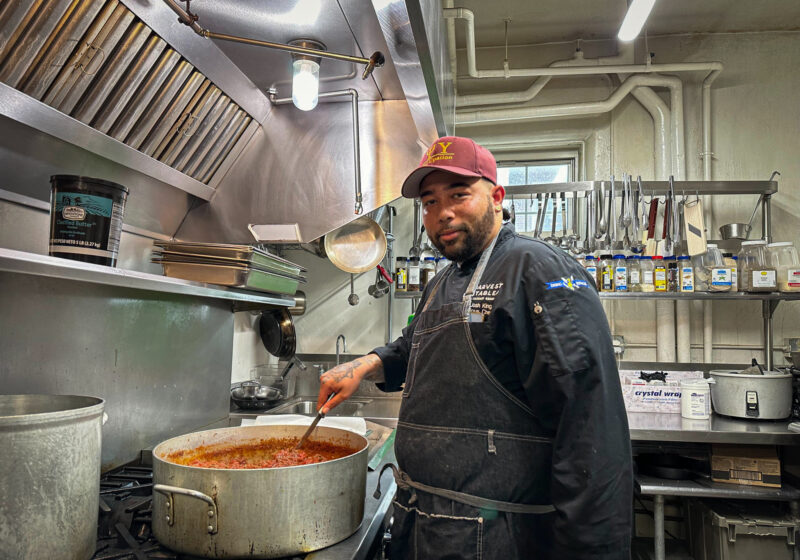Although I do call myself a film buff, I can admit I have only seen one Edgar Wright film, “Scott Pilgrim vs. The World.” And even before watching, I was told that Wright was one of the greatest, if not the absolute greatest, comedy filmmakers working today. This makes me more excited to finally watch the Cornetto Trilogy one day. What enhanced it was when I decided to watch “Last Night In Soho” at 9 p.m. screening in the Hoyt Auditorium. Even when Wright claims to make a more serious film, he still finds a way to make audiences laugh more than some other comedies.
In “Last Night in Soho,” Eloise (Thomasin McKenzie) is a teenage orphan from the British countryside who gets accepted to a prestigious fashion school in London. As she arrives in the city, she finds herself very uncomfortable with her on-campus roommate, and decides to rent out the room from an old landlady named Ms. Tobin (Diana Rigg). Living there is fine until Eloise goes to bed, and finds herself in a fantasy where she is an extroverted lady named Sandie (Anya-Taylor Joy). Sandie goes to nostalgic ’60s night clubs every night and meets a man named Jack (Matt Smith) who makes her a popular nightclub singer. Eloise’s fantasies are initially great to her, but as she realizes the reality behind her fantasies, she slowly starts to go insane.
Edgar Wright is now one of a long line of directors who have transitioned from classic comedies to comedic thrillers. From Adam McKay to Todd Philips to Peter Farrelly, they have transitioned into making Oscar-winning dramas that are extremely different from what they are known for. Wright seems to want to ride the bandwagon before it dies out. But ironically for the director that makes fun of clichés, he seems to believe that they are integral to unique stories. This is even stranger because it seems that the story was trying to play out like a psychological horror story heavily influenced by Federico Fellini’s “8 ½.” From predictable twists and jump scares to the formulaic “country girl in the big city” storyline, he and co-writer Krysty Wilson-Cairns (Oscar Nominated Screenwriter for “1917”) almost play mad libs with cliché story terms. The dialogue also doesn’t sound as stylized or engaging as the scripts he’s known for writing, with more text-to-speech level dialogue.
Despite Wright also having lots of experience working with inventive cinematography and editing in his filmography, it feels stale. When it comes to the dream sequences, it is able to give the 1960s a dingy yet quirky appearance for the story to have some mystery involved. As for the non-dream sequences, it was too forgettable for me.. The editing isn’t something to write home about, and doesn’t mesh well with the CGI that the film didn’t do well. From the silly-looking ghost zombies that ironically look like Nega Scott from “Scott Pilgrim” to the hilarious attempt of making CG glass, it just takes me out of wanting to be enthralled.
Thomasin McKenzie gave such a neutral performance; she didn’t do anything memorably good or bad. Anya-Taylor Joy was more unique in her performance as a nightclub singer who descends into demeaning servitude. The strange and mysterious connection she has with Eloise in the film makes her the most memorable part of the movie. Matt Smith doesn’t do anything new with his role, merely making the same pinchy face he makes in most of his other works.
In its role as a dramatic first in Edgar Wright’s career, this film disappointed. It stands as a better example of a genre it doesn’t want to be — comedy — than of a thriller.






